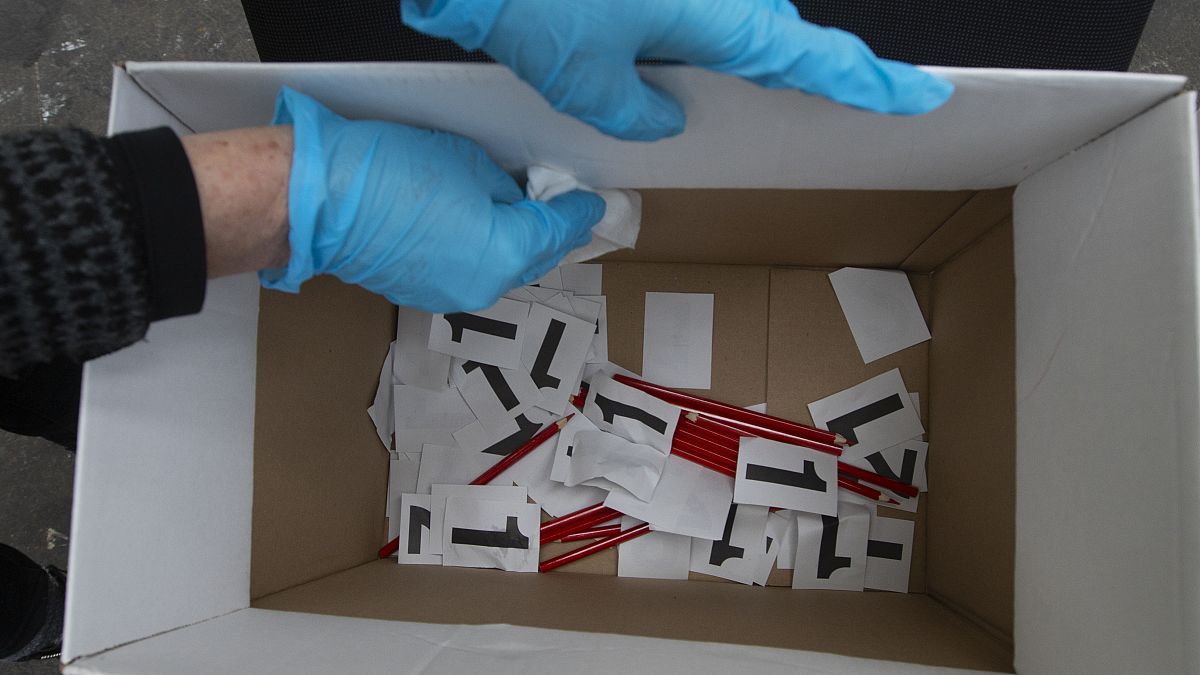Elderly citizens were asked to vote by post for the first time in the elections, which led to some confusion.
The Dutch government has said that it would adjust rules to accept certain mail-in ballots for the general election.
This week's vote is being held during the COVID-19 pandemic and measures have been taken to protect voters from infection.
Polling stations have been opened for three days to allow social distancing at ballot boxes, while more citizens have been asked to vote by post than ever before.
Specifically, citizens aged 70 years or over were asked to vote by mail, many of them for the first time.
As the first mail-in ballots were submitted, Dutch authorities received reports that postal voters had been submitting incorrect envelopes.
"Local councils have informed me that during the pre-opening of postal voting stations, they have found that some of the return envelopes do not contain a voting pass," Interior Minister Kajsa Ollongren said in a letter to parliament.
"The postal vote offices suspect that the voter has put the voting pass in an [inner] envelope together with their actual vote."
These erroneous mail-in ballots were initially put to one side but on Tuesday, the Dutch government said in a statement that it would modify rules to accept them.
"Following problems with the counting of postal votes, the Ministry decided to change the procedure for counting votes," the Dutch Electoral Council (Kiesraad) told Euronews.
The Council of State has also acknowledged that the authorities had not provided enough instruction to new postal voters on how to use this method.
"Due to the unpredictability of the course of the virus … there was insufficient opportunity to test in the normal, careful manner whether the procedures involved in this voting method were sufficiently clear for this group of voters," the Council said in a statement.
Counting the votes 'a balancing act'
The decision to count these mail-in ballots that were submitted incorrectly does raise questions over the secrecy of the election.
But advisors to the Dutch Council of State have said that discarding the votes altogether would be a greater risk to the fairness of the elections.
"The invalidation of a considerable number of ballot papers - that were cast in good faith by these voters with the best of intentions - constitutes a greater breach of the legitimacy of this election than a failure to strictly enforce [the rules]."
However, the Council noted that the same procedure must be used for all postal votes that have been received, including those that had already been set aside.
"The Council also stresses that it is important that this approach can count on broad political support."
Kajsa Ollongren has stated that she had communicated the new advice to local councils and municipalities.
Meanwhile, the Kiesraad has also pointed out that mail-in ballots from voters abroad did not have to be placed in a separate envelope for previous elections.
"Until 2001, postal ballots from voters outside the Netherlands did not have to be placed in a separate envelope, but could be placed loosely in the return envelope together with the voting pass," they said in their advice.
But the Kiesraad has reiterated that opening these envelopes "should not be done lightly".
"Putting the postal vote aside would also disadvantage the postal voter, the vote would then be lost," they advised.
"Opening the letter ballot envelope to check whether it contains all the ballot papers is a balancing act between these two important core values of the election process: the accessibility of the vote and the secrecy of the voter's vote."
